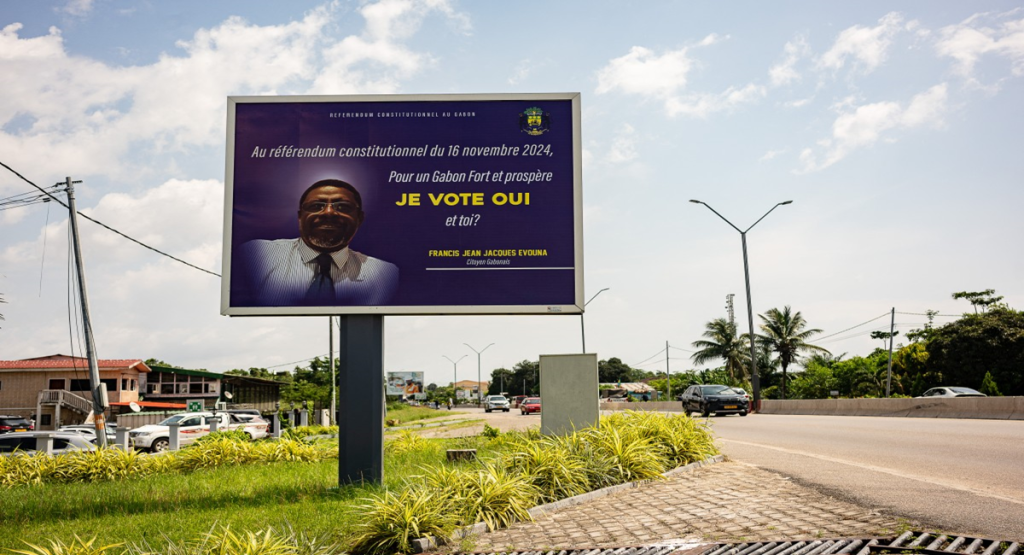Gabon’s constitutional court on Friday validated a referendum vote which approved new constitution, paving the way for a presidential election set for next August.
The vote which took place two weeks ago, 15 months after a military coup, saw nearly 92 percent of participants vote in favour and the court approved the outcome.
Court president Dieudonné Awa’a Owono said the court made various rectifications of material errors and necessary adjustment.

Owono added that no appeal relating to the regularity of the referendum operations has been received at the Constitutional Court registry.
The court could therefore proclaim the overall result of 91.64 percent “yes” votes, he said, detailing the results by province.
Gabon’s military rulers had already announced the approval of the new constitution based on provisional results. The court revised down the score from an initially declared 91.8 percent in favour and likewise revised down slightly the number of registered voters.
It also revised turnout slightly upwards to 54.18 percent.
Transitional president General Brice Oligui Nguema had hailed the vote as a “historic moment” for the country.
It came more than a year after the ruling junta staged a coup to end 55 years of rule by the Bongo family.
Oligui Nguema has vowed to hand power back to civilians, but has also made no secret of his desire to win the presidential race in the oil-rich country.
The new constitution, comprising 173 articles, is rooted in a national dialogue held earlier this year. It introduces a presidential system with substantial executive authority, a seven-year term that can be renewed only once, and a prohibition on dynastic succession of power.
One article designates a celebration of liberation, officially recognizing the junta’s overthrow of the previous regime. Additionally, another provision grants immunity from prosecution and conviction to those involved in the events that led to the junta’s rise to power.
During the election, there were no major incidents reported by a network of observers made up of local associations, which were backed by the United Nations.


